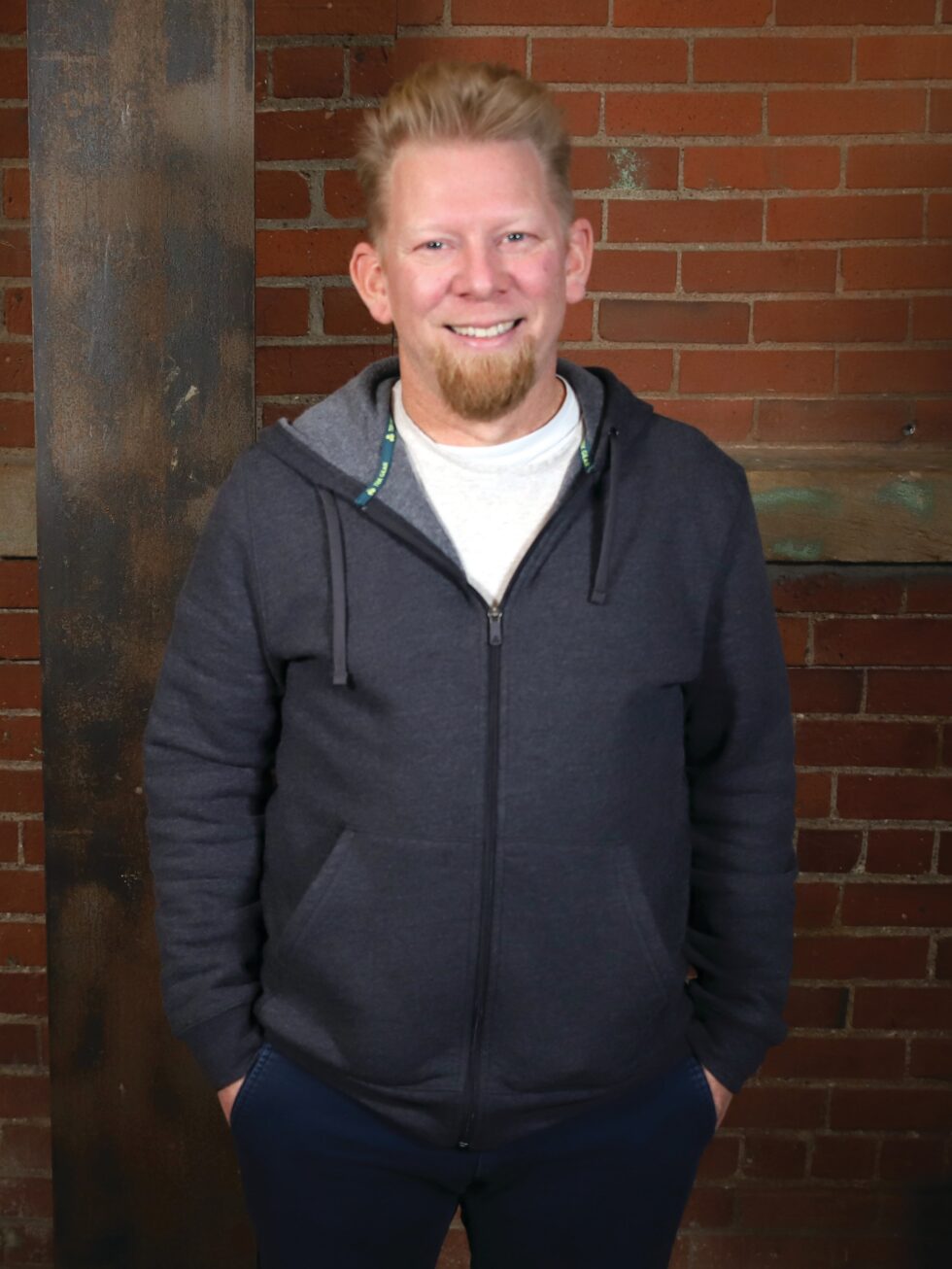
Story By Thomas Moll
Director of Content & Innovation
Pastor Shawn Davis is a missional pastor and coach (in training) at St. Michael Lutheran Church in Fort Wayne, Ind. He is certified as a mental health coach through the American Association of Christian Counselors. He is currently taking classes through International Coaching Federation and has coached more than 200 hours. In this interview, he shares tips for receiving coaching, how it can help, and how you can help others by listening. You can learn more about his coaching at linqapp.com/pastor_shawn_coaching.
What is the difference between counseling and coaching?
You can look at the difference as counseling is looking at what was and finding coping mechanisms to help you today. Coaching is looking at what is and helping you move forward into tomorrow.
Oftentimes, we have stumbling blocks of going into counseling because we don’t want to dredge up the past. It’s there. We’ve lived through it. In coaching, what we want to do is to dive into and help you process what’s on your mind in this moment because oftentimes what’s on your mind is taking up your thought processing so that you can’t process other things. If we can help you process what’s happening in that moment, we can help you move beyond that, and not just that piece, but other pieces, as well. That’s why I start with, “What’s on your mind?” It’s a very immediate thing.
Sometimes we’re going to go back because you have stories that got you to the point where you’re at, but what we’re really going to concentrate on is how we can move you down the field. How can we bring some action to help you process and move to the next step of whatever it is that’s taking up your brain space? How can we get you from what it is right now to what you’d like it to be?
How would you coach someone when their future just got derailed by a life circumstance?
That’s a big one. When we get hit over the head with something big and life stops except for one area, that’s a perfect example of what a coach can be helpful with. And when I say “coach,” there is a professional aspect to it, but there’s also an aspect of just having someone to listen to your story without judgment or expectation so that you can articulate what it is that’s on your mind. Often what happens is that we just let it sit, and we don’t talk about it with anyone. I’ve been there and done that.
It’s important to find that one person who can just listen, isn’t there to give you advice or to tell you exactly what should be done, but allow you to sit and just process. Our brains are made in a way that as we take time to think, oftentimes we can discover answers.
For instance, I was talking to a gentleman not too long ago who had just been diagnosed with cancer. He started to talk and process what was on his mind, and he wasn’t struggling with his illness being terminal. It was the shock of losing something. It was the shock of grief. We were able to work through grief processing and give him action steps for that. Then, he had a lot more brain space to be able to make appointments and look ahead. It changed his perspective.
I think, oftentimes, when those big life events happen to us or around us, we don’t process them or we become laser focused on one thing and we lose perspective.
I think of Paul in Philippians where he is talking to this church plant, and he says, “Rejoice in the Lord always; again, I will say, rejoice.” He knows that’s not really possible, right? So, later he says, “Don’t be anxious about anything, but in every situation, by prayer and petition ...” lift your prayers to the Lord. So, there’s a little bit of a change in perspective that it’s not just about us, but God’s got this. Paul goes on to say, “Whatever is true, whatever is honorable, whatever is just, whatever is pure, whatever is lovely, whatever is commendable, if there is any excellence, if there is anything worthy of praise, think about these things.”
There could be some things that make it very hard to rejoice in the moment. But, if we pray about it and we take a step back to see all of this creation around us, we can see that there’s more to the story—there’s more to our story; there’s more to God’s story.
We are part of that story because of the love and forgiveness Jesus gives us. It changes our perspective.
I think that’s a lot of coaching—helping people to see those obstacles that come up, not as hurdles that can be managed, but hurdles that you might have to go around somehow. Or, you may have the ability to overcome the hurdle. If so, let’s give you some action behind it.
A coach isn’t just a cheerleader. If you’re having a hard time scheduling that appointment, let’s take a bigger look at that. Why is it hard to schedule the appointment? Is it something about the appointment itself, or is it using the phone? Is it that when you make the appointment, suddenly the diagnosis becomes real? Let’s talk about it. Even if someone is retired, the act of putting that phone call on a full calendar could be a hard thing to do. So, as a coach, I might have someone talk through the issue and actually put down a date, time, and place on the calendar while we’re talking. So, in coaching, there’s time for deep discussion and time for practical action.
What advice would you give to someone who is looking to find a coach?
I think, especially post-quarantine, that we have become more isolated. Many people no longer have people around the table who are asking how their day went. People don’t have coworkers to notice when they are having a bad day. This has created space for coaching to come in. My hope is that, at some point, we can get back to the idea of having meals together where we help each other process. I think coaching helps to fill a void of meaningful conversations.
A lot of counseling centers are employing coaches now. If you want something in the way of personal growth, look around your area for something like life or leadership coaches.
One thing I would double check is what the coach’s certification is. The gold standard is the International Coaching Federation. They have a designation of OCC and PCC, and those are things to look for. I also work for the Coach Approach Ministries, and they have certification called Christian Leadership Coaching (CLC).
What kind of advice would you give someone who wants to be a helpful listener?
I would say practice. It’s a mindset shift for a lot of people because we naturally want to jump into conversations and offer advice. I was with a group of pastors, and I was talking about coaching. I asked them to pair up and each partner would have two minutes to introduce themselves and talk about whatever was on their mind, nothing big. And the other pastor was just going to listen and follow along, and at the end, summarize what the other pastor had just said. We had five groups. In those two minutes, one group lasted five seconds before the other one jumped in, one lasted 10, and the most was 35 seconds.
We live in a place of wanting to interject into conversation. We need to shift our mindset to say that there are some conversations that we just want to listen, and we want to let people know that we’re there and following them so that they can be heard.
I talk about using 80/20—listen 80 percent of the time, talk 20 percent of the time. And that is a hard thing to do, but it's a goal to work toward. As you get better, you'll notice that you're probably not even talking 20 percent of the time. You’re really just gathering information.
And let people know that you’re listening. Do those nonverbal cues of a head nod, or if they say something funny, you can laugh, and when they take a pause, summarize what they said in a sentence or two. Don’t recap everything they just said, but just share something that lets them know that you have heard them and what they’re saying.
What kind of questions would you encourage someone to ask if they’re trying to help someone through a tough time?
Coaching is really all about open-ended questions and getting people to talk because that’s when we process, when we talk through things. Some great questions to ask if you want to step into that role of listening are things like, “What else?” and “What’s on your mind?”
Before, I would say, “I’m sorry you’re going through that. Let me pray for you.” Now, I might say, “I’m sorry you’re going through that. Let’s talk about it a bit more and see if we can get to some actionable things you can do, and let’s pray over it as well.”
~ Pastor Shawn Davis
HOW CAN I FIND A COACH?
A lot of counseling centers are employing coaches now. If you want something in the way of personal growth, look around your area for something like life or leadership coaches.
As a note:
Coach’s certification: The gold standard is the International Coaching Federation or Coach Approach Ministries, and they have certification called Christian Leadership Coaching (CLC).


